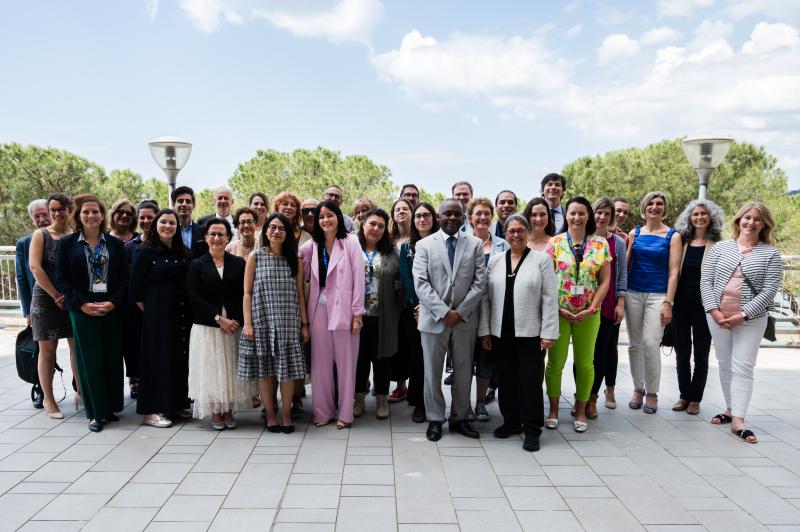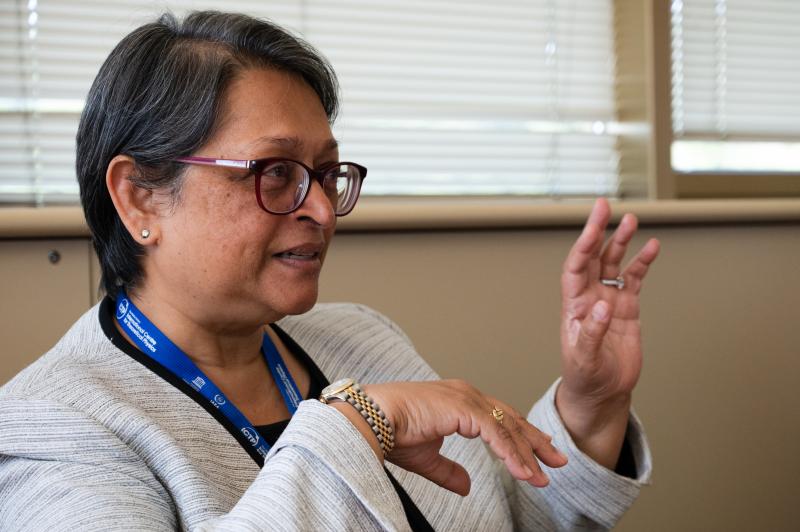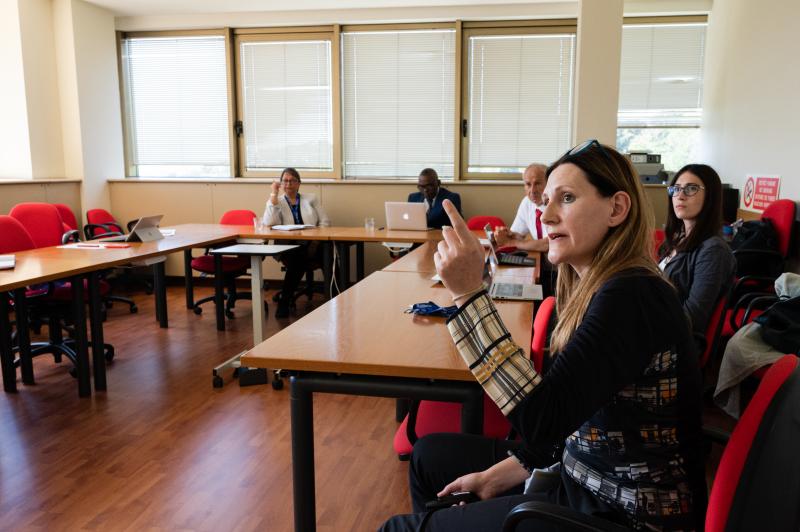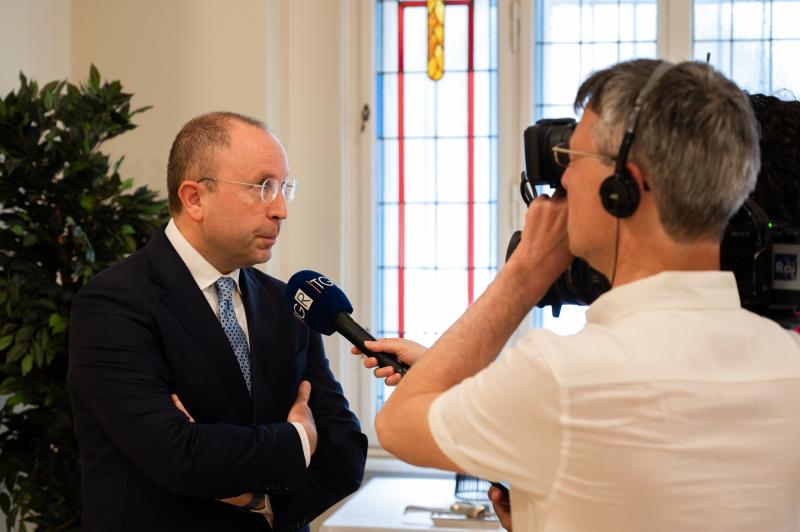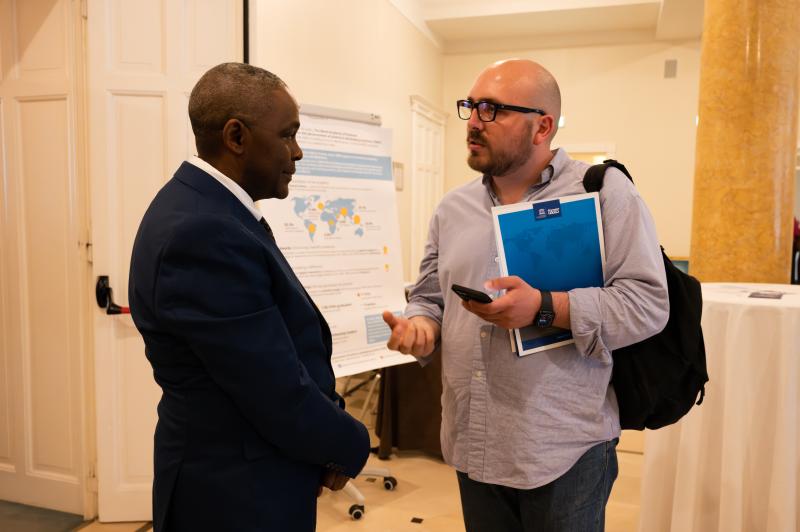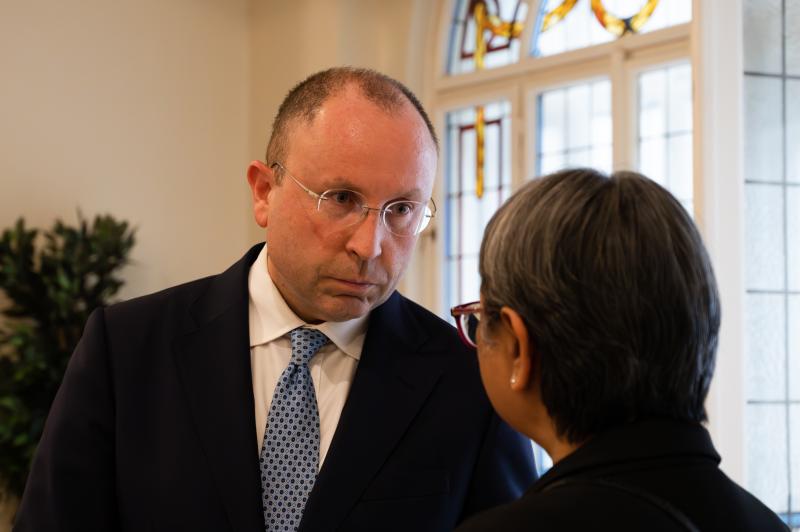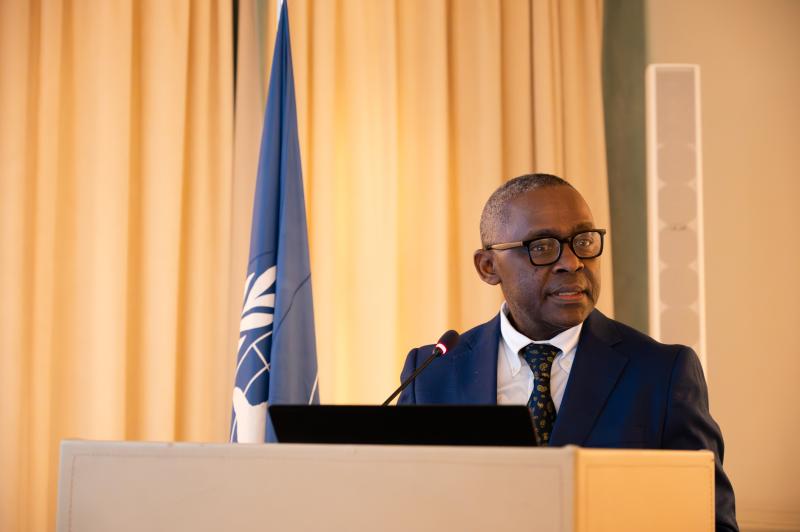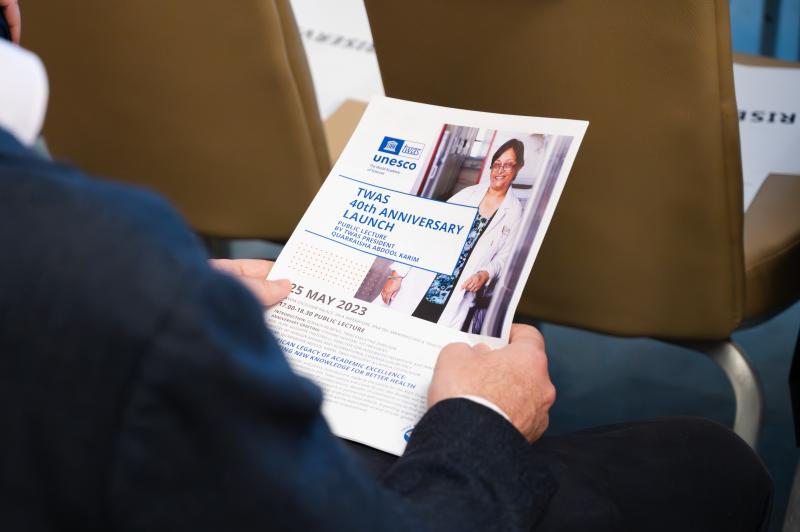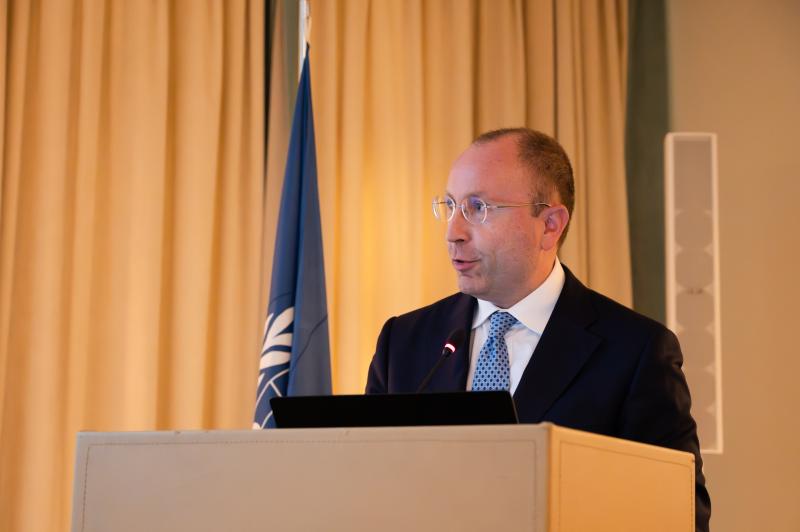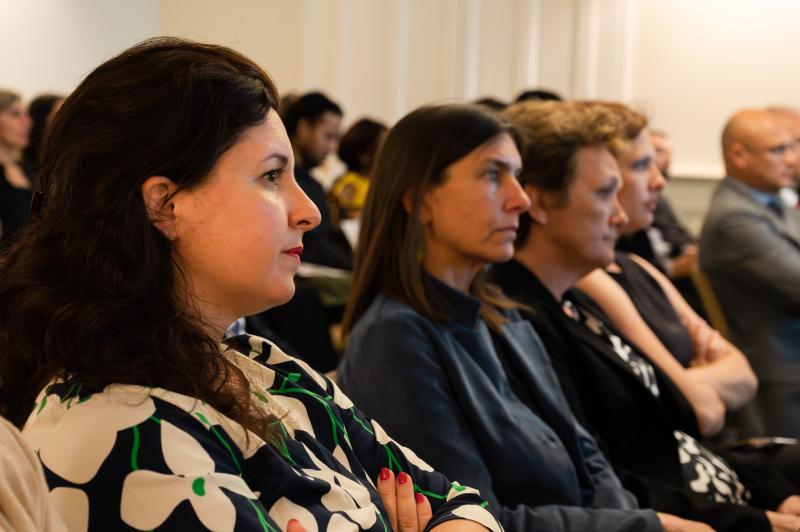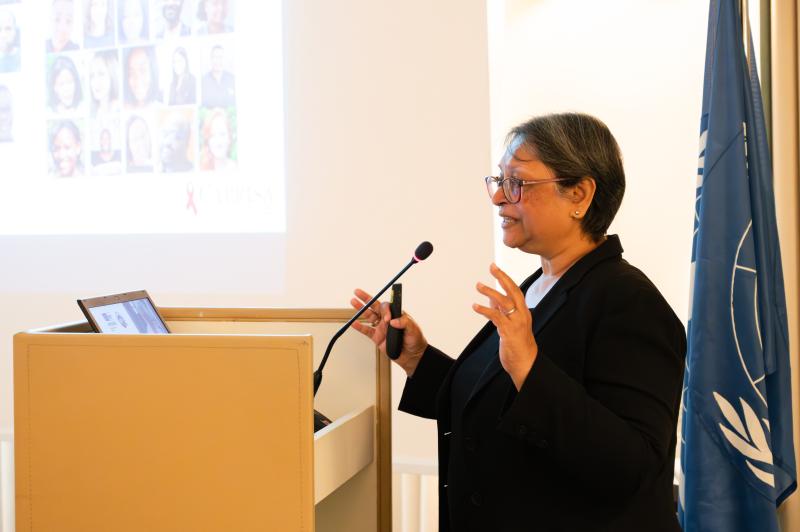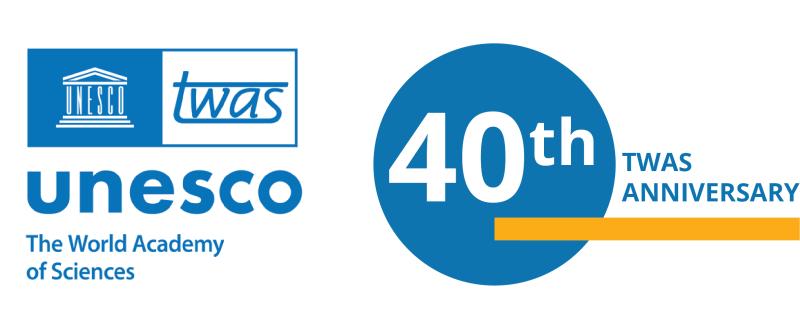
For 40 years, The World Academy of Sciences for the advancement of science in developing countries (TWAS) has been a leading force in developing crucial scientific capability in some of the most underdeveloped countries in the world. To launch the 40th Anniversary of the Academy, TWAS president Quarraisha Abdool Karim visited the organization’s headquarters in Trieste, Italy. On 25 May, she met representatives of other Trieste-based scientific organizations and delivered a public lecture on the African legacy of academic excellence, in generating new knowledge for better health.
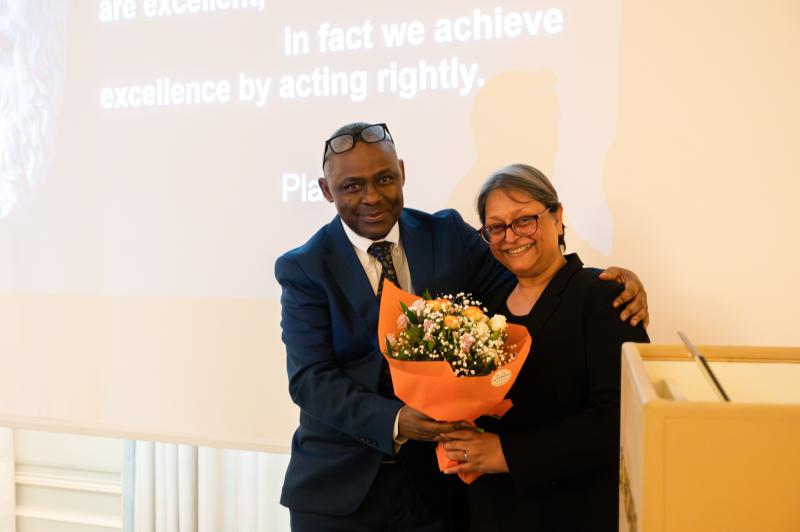
Abdool Karim is an eminent South African epidemiologist, a 2015 TWAS Fellow, and the winner of the Academy’s prestigious TWAS-Lenovo Science Award in 2014. She is also the co-founder and associate scientific director of the Centre for the AIDS Programme of Research in South Africa (CAPRISA) in Durban, South Africa. She is currently serving her first of four years as the president of TWAS. Abdool Karim is the first woman to serve in the role of TWAS President, and leads a 16-member council comprised of eight men and eight women.
The South African scientist is a pioneer of life-saving research that protects women from HIV/AIDS and tuberculosis (TB). She is known worldwide for demonstrating the effectiveness of the basis of a new form of HIV-prevention PrEP (pre-exposure prophylaxis): the antiretroviral medication tenofovir. Tenofovir is a vaginal gel that has been shown to reduce HIV infection, while giving women direct, effective control over their health. Her discoveries have also shaped life-saving clinical guidelines for patients infected with a combination of HIV and TB in countries across the world.
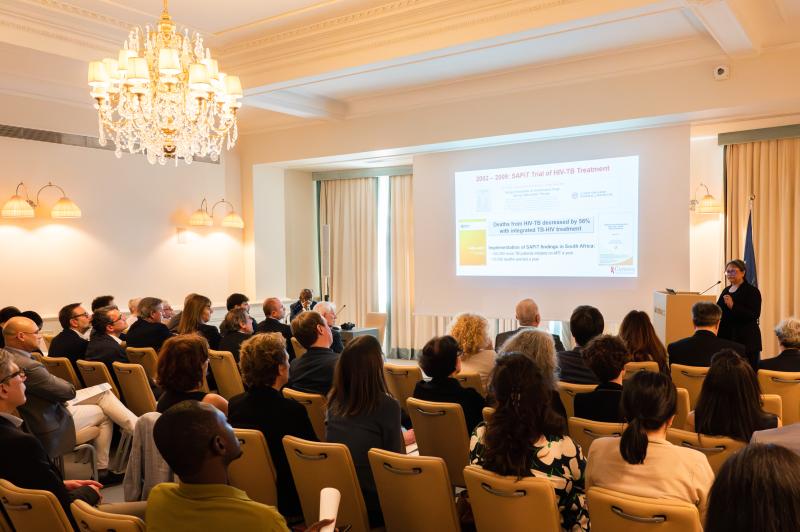
While visiting, Abdool Karim met with TWAS secretariat staff as well as the Academy’s sister organizations, InterAcademy Partnership and the Organization for Women in Science for the Developing World, and its host institution, the Abdus Salam International Centre for Theoretical Physics. The visit culminated in the TWAS 40th Anniversary Launch event at the Savoia Excelsior Palace Hotel in Trieste, and a public lecture from Abdool Karim on public health, academic excellence, and Africa’s past and future.
She remarked that science, education and innovation have an important role in making the world a better place. Noting that this was her first visit to Trieste, she praised the city’s science ecosystem and the prevalence of local science institutions’ international collaborations.
“I think this anniversary is a major milestone for TWAS,” Abdool Karim said. “We’ve moved beyond rhetoric but can actually count our results—and not just count the number of PhD graduates, and not just count the collaborations that have led to research—we have seen the impact of these investments at a country level. And, we have seen the potential of this critical mass of scientists to achieve transformative societal impact.”
TWAS enters its fifth decade
The Academy was founded in 1983 by a distinguished group of scientists from the developing world, under the leadership of Abdus Salam, the Pakistani physicist and Nobel laureate. The official inauguration of TWAS took place in 1985, in Trieste, during a ceremony attended by UN Secretary-General Javier Pérez de Cuéllar. The 40th anniversary celebrations that just started will span three years to reflect the process that led to the inauguration of the Academy. Since the 1980s, TWAS has grown into an internationally recognized force for science, policy, and diplomacy. Today, it has over 1,380 Fellows, some of the world's most accomplished scientists and engineers—including 12 Nobel laureates— representing 110 countries. TWAS has provided thousands of research grants to developing world researchers, and recently graduated its 1,000th PhD fellowship scholar.
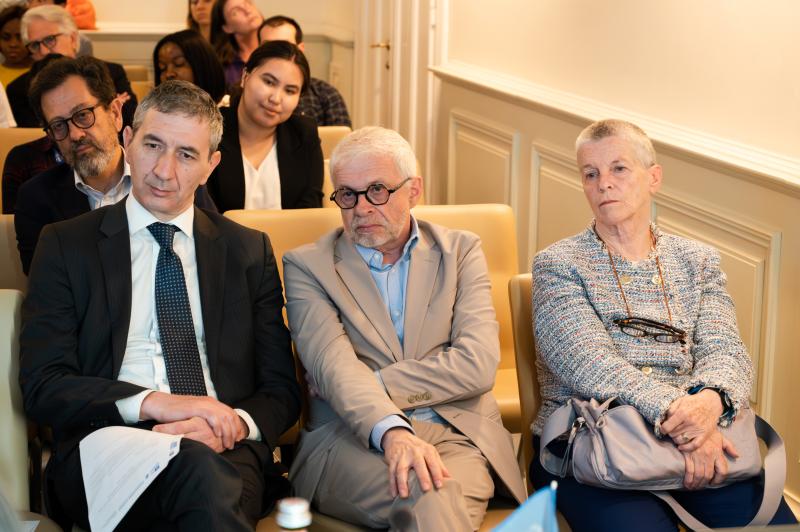
TWAS Executive Director Romain Murenzi opened the anniversary event. He was followed by Stefano Fantoni, president of the Trieste International Foundation for the Progress and Freedom of Sciences (FIT); and Minister Plenipotentiary Giuseppe Pastorelli, director for integrated promotion and innovation at the Directorate General for Country Promotion of the ministry of Foreign Affairs and International Cooperation of Italy, a key supporter of TWAS.
“TWAS has been working for 4 decades with many partners from all around the world, but our roots are deep in this city. TWAS is indeed a proud partner of the 'Trieste System' of scientific organizations, and SiS FVG, The Scientific and Innovation System of Friuli Venezia Giulia,” Murenzi said.
“Let us all work together to tap the full potential of the developing world, helping them make progress on the road to prosperity,” he urged.
"Today we know how much TWAS has been able to do in solving the problems of underdevelopment,” said Fantoni. “TWAS and FIT have come a long way since then, collaborating in the development of several important actions, undertaken to promote and support scientific excellence in developing countries."
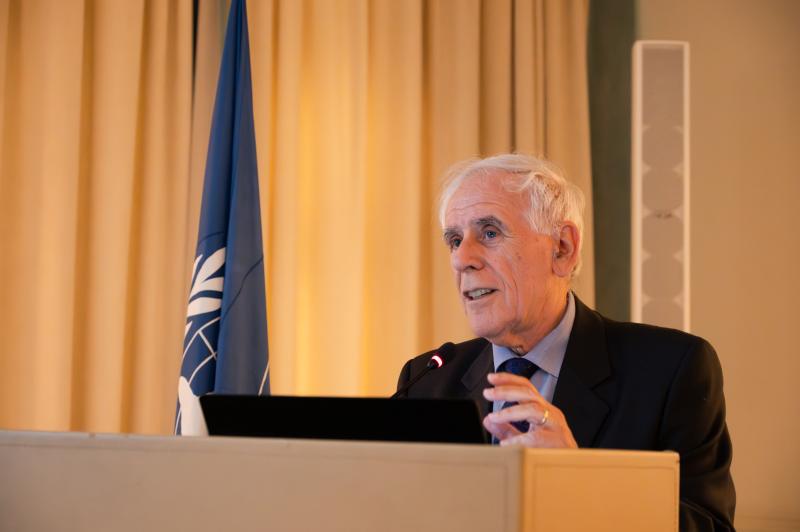
Italy and TWAS share a history, but they still have a long way to walk together, Pastorelli said. The scientific world has an international dimension, he added, saying that science brings peace, development, and growth.
"Italy and TWAS share a history, but we still have a long way to walk together, and I hope I'm a tile of that trail that we have ahead." Pastorelli said.
The scientific world has an international dimension, Pastorelli added, and science brings peace, development, and growth. "For this reason, we need not only to collaborate, but to reinforce our partnership. What the Italian government and TWAS are doing, and will keep on doing, is not to create barriers, but to let science grow."
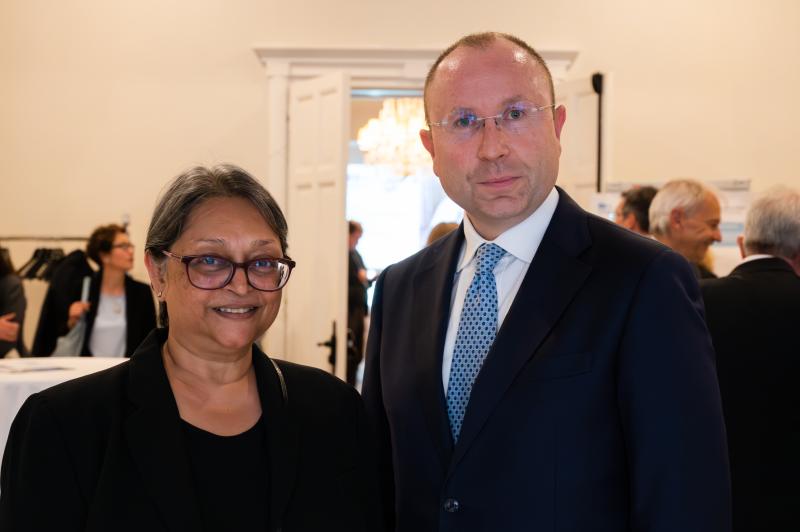
Medical research and health in Africa
Abdool Karim’s public lecture provided a broad yet detailed picture of Africa’s legacy of academic excellence and generating new knowledge for better health. She detailed her work at CAPRISA saving lives through new treatments of persons with HIV and TB simultaneously. She also discussed the alarming HIV risk for young women.
In sub-Saharan Africa, HIV and AIDS are an ever-present threat. According to 2021 UNAIDS information, the region contains an enormous share of the estimated 38.4 million people worldwide who live with HIV.
For young women in sub-Saharan Africa, the situation is especially grave, she said, who were becoming increasingly infected with HIV by older men. This awareness of gender dynamics led to her research on the life-saving tenofovir gel treatment, which provided a crucial means for women to autonomously protect themselves from HIV infection.
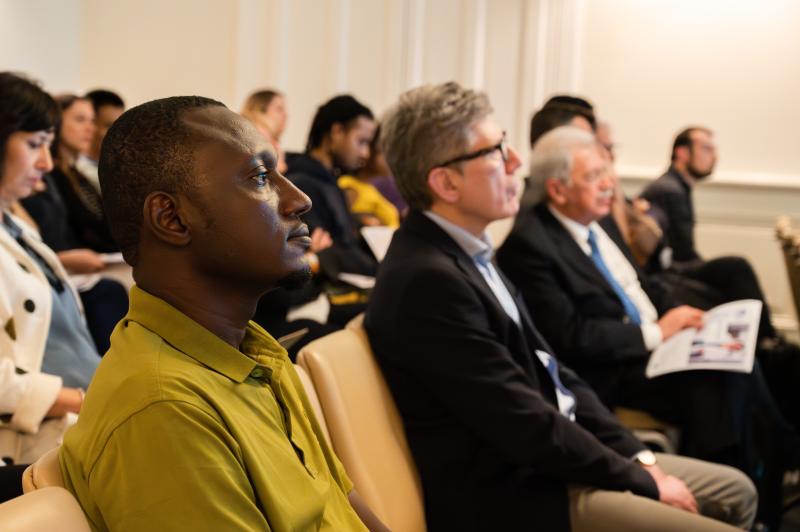
“One of the gaps was that none of the technologies we had were things women could use to protect themselves,” she said. “And so we started our journey. Every year, year after year, we tested new products. Eighteen years went by, and all we had was failure. But when we fail, we can’t give up. We have to keep trying. We have to learn from our failures and know to take lessons from that.”
But she said that in 2003, they came across a promising drug call tenofovir, which had some clinical and preclinical data supporting it. “We decided we had to do something drastically different, test it topically applied, to see if we can prevent HIV infection,” she said.
This led to key findings that tenofovir gel, when topically applied to the genital area, reduced HIV infection in women by 39% — and by 74% among women with a healthy genital tract. The results won widespread acclaim, and were published in the prestigious journal Science in 2010 and made headlines in the New York Times, The Guardian, Washington Post, Nature, and the Wall Street Journal.
Abdool Karim also discussed efforts to rise to the challenge of the COVID-19 pandemic. She detailed the impact of the pandemic responses on care for those with HIV and TB, as well as South Africa’s own response, and her own role in providing the earliest epidemiological analysis of the omicron variant, which was first detected in southern Africa in late 2021. She noted that a key lesson from the years-long pandemic was the importance of maintaining an open, cooperative spirit in international science.
“Wherever we are in the world, when we generate local knowledge, there is the importance of sharing that knowledge,” said Abdool Karim, “And even though sometimes we pay a high price for sharing knowledge, that won’t stop me from sharing knowledge.”
Abdool Karim then tapped into her experience influencing health policy and clinical care on a global scale. She advocated building science for the future of Africa where the need for expertise in the medical sciences is great, and emphasized the importance of programmes such as training grants to ensure scientific strength for developing countries in the future.
“I’m a strong believer in investments in human capital,” she said. “Because you can’t make a difference, you can’t close gaps, without having a critical mass of scientists working on the challenge.”
Sean Treacy
Video-interview with TWAS President Abdool Karim
More photos are available here and on the TWAS Flickr page.
